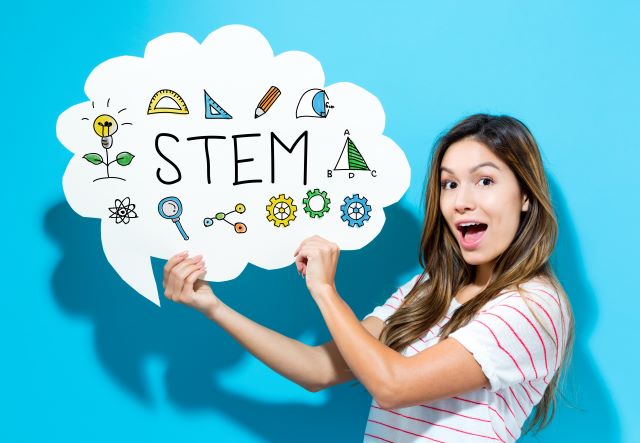
Electric vehicle conversion kits, virtual reality applications to provide life-skills training to children with autism, and solutions for addressing the pandemic from biodegradable masks to at-home virus testing are just a few of the projects that have been selected to advance to the final round of the Community College Innovation Challenge (CICC).
The CCIC is a national competition where community college student teams, working with a supportive faculty or administrator mentor, use science, technology, engineering, and mathematics (STEM) to innovate solutions to real-world problems.
In partnership with the National Science Foundation, the American Association of Community Colleges (AACC) announced 12 finalist teams selected for the 2021 CICC which was held as a virtual event.
“AACC is pleased to have been able to reconceptualize the CCIC after postponing last year’s competition due to COVID-19,” said Walter G. Bumphus, president and CEO of AACC. “The students competing in this challenge are leaders in innovation, and their use of STEM solutions to benefit society are not only highly significant but necessary in helping to secure a strong future. Our post-pandemic world will need fresh, innovative minds to design creative solutions to help those that need it most, and we are excited to help facilitate the process.”
Finalists attend a Virtual Innovation Boot Camp this June and will interact with entrepreneurs and experts in business planning, stakeholder engagement, strategic communication, and marketplace dynamics. The Boot Camp culminates in a Student Innovation Showcase with STEM leaders and Congressional stakeholders, and a pitch presentation to determine the first, second, and third-place winning teams.
“It is truly inspiring to see the creativity and amazing talent of students in the nation’s community colleges, and I would like to congratulate the finalists for their hard work,” said Karen Marrongelle, assistant director for NSF’s Education and Human Resources Directorate. “We need to inspire new generations across all communities to explore the wonders of science and engineering, and CCIC is an exciting opportunity for students to start thinking about STEM careers. I look forward to learning more about their projects and the contributions these students will make to America’s STEM future.”
The 12 finalists and their projects are:
Austin Community College (Texas)
The OASIS– the Officer Aptitude & Stress Information System uses artificial intelligence to help police departments better analyze data from devices such as camera footage, GPS systems, and heart-rate monitors.
Bergen Community College (New Jersey)
The Electric Vehicle Conversion Project seeks to reduce carbon emissions within the transportation industry by developing modular kits to convert gasoline-powered pickup trucks into fully electric vehicles.
Borough of Manhattan Community College (New York)
The BMCC student team is developing accessible and affordable Virtual Reality applications to serve as an interactive learning platform for children with autism to teach them essential life skills.
Columbus State Community College (Ohio)
The Greenago: Turning Colleges Green project is placing SMART, self-compacting recycling bins on college campuses that reward students for recycling through the use of an app.
Henry Ford College (Michigan)
The MaskKito: A Sleek Nano-Cleanser Mask project is developing a COVID-19 prevention mask with the ability to destroy viruses using the combined technology of nano-fiber weaves with UVC radiation.
Itawamba Community College (Mississippi)
The Achelous project is developing a filtering mechanism to collect clean water that can be used in rural areas, in times of emergency, and to provide water to the homeless.
Ivy Tech Community College (Indiana)
The Viruscan project seeks to combat the spread of a pandemic virus through a new inexpensive, self-administered test that automatically alerts primary care providers.
Johnson County Community College (Kansas)
The Johnson County team is creating a mechanical bench that allows individuals who use mobility aids such as wheelchairs to get from their driver’s seat to the back of their vehicle unassisted to access their device.
Nashua Community College (New Hampshire)
The EnviroMask project is developing an environmentally friendly, fully biodegradable face mask using cotton with bioplastic and non-woven bamboo fiber.
Pasadena City College (California)
The Pasadena City College team is exploring the use of antibody-conjugated nanoparticles to assist in the identification and treatment of cancer and infectious diseases.
Tarrant County College (Texas)
The Shroomzzz: In-Hive Mushroom Cultivator project is focused on improving the health of bee colonies.
Virginia Western Community College (Virginia)
The Community Coral Project is supporting coral growth through 3D printing of porous structures made of PLA, a plastic substitute made from fermented plant starch.
The U.S. Army Corps of Engineers has been tasked with…
Brown and Caldwell, a leading environmental engineering and construction firm,…
Humboldt State University, one of four campuses within the California…